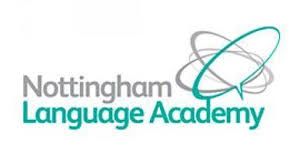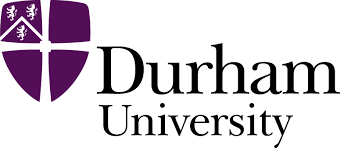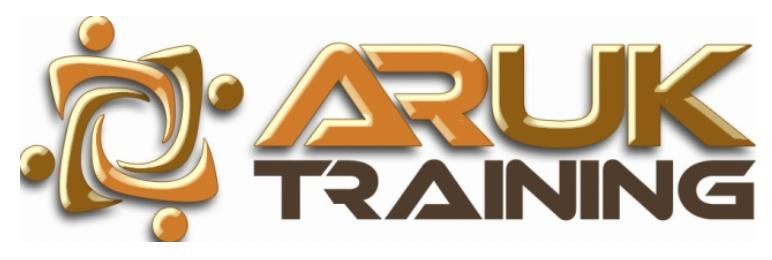
Corporate Governance and Strategic Risk Management
Course ID: 2508180101299EGI
Course Dates : 18/08/25 Course Duration : 5 Studying Day/s Course Location: London, UK
Language: Bilingual
Course Category: Professional and CPD Training Programs
Course Subcategories: Leadership and Management Excellence
Course Certified By: * Projacs Academy
* Professional Training and CPD Programs
Certification Will Be Issued From :
KSA
Course Fees: £4,838.34
Vat Not Included in the price. VAT may vary depending on the country where the course or workshop is held.
Click to Pay
Date has passed please contact us Sales@e-s-hub.com
Course Information
Introduction
Corporate governance and strategic risk management are foundational pillars for organizational success, shaping the way businesses operate, make decisions, and sustain long-term value creation. These disciplines are particularly critical in an era where regulatory scrutiny, stakeholder expectations, and global uncertainties demand heightened accountability and foresight. For professionals tasked with leading or advising organizations, mastering these areas is not merely advantageous—it is essential. This course delves into the principles, frameworks, and practices that define effective corporate governance and strategic risk management, equipping participants with tools to navigate complex challenges while fostering trust and resilience.
One of the most pressing issues in contemporary corporate environments is the misalignment between governance structures and operational realities. High-profile scandals, such as those involving Enron and Volkswagen, underscore the devastating consequences of poor governance and inadequate risk oversight. These incidents highlight gaps in knowledge and practice, where leaders fail to anticipate risks or implement robust controls. By addressing these deficiencies, this course empowers participants to bridge the divide between theoretical frameworks—such as the Cadbury Report or COSO ERM—and practical application, ensuring alignment with modern governance standards.
The benefits of mastering corporate governance and strategic risk management extend beyond compliance; they drive competitive advantage. Organizations with strong governance frameworks experience enhanced decision-making, improved financial performance, and greater investor confidence. For individuals, proficiency in these areas enhances career prospects, enabling them to assume leadership roles or advisory positions. Consider the case of Johnson & Johnson’s handling of the Tylenol crisis in the 1980s—a textbook example of effective governance and risk mitigation. By swiftly recalling products and implementing tamper-proof packaging, the company preserved its reputation and set a benchmark for crisis management.
This course draws on established theories and industry trends to provide a comprehensive learning experience. Participants will explore frameworks like the OECD Principles of Corporate Governance, which emphasize transparency, accountability, and stakeholder engagement. They will also examine emerging trends, such as the integration of environmental, social, and governance (ESG) criteria into decision-making processes. These concepts are increasingly relevant as investors and regulators prioritize sustainability and ethical practices. Real-world examples, such as Unilever’s commitment to reducing its carbon footprint while maintaining profitability, illustrate how governance and risk management can align with broader societal goals.
A key challenge addressed in this course is the dynamic nature of risks in a globalized economy. From cybersecurity threats to geopolitical instability, organizations face unprecedented uncertainty. Effective risk management requires not only identifying potential hazards but also developing adaptive strategies to mitigate their impact. For instance, during the COVID-19 pandemic, companies with robust governance and risk frameworks were better positioned to pivot operations, protect employees, and maintain stakeholder trust. This course equips participants with the skills to anticipate, assess, and respond to such disruptions.
Ultimately, this program is designed to transform participants into catalysts for change within their organizations. By blending theoretical insights with practical tools, it fosters a proactive approach to governance and risk management. Whether you are a seasoned executive seeking to refine your expertise or an emerging leader eager to build foundational knowledge, this course offers invaluable insights. It is an opportunity to contribute meaningfully to your organization’s success while advancing your professional capabilities.
Objectives
By attending this course, participants will be able to:
Analyze the core principles of corporate governance and their implications for organizational performance.
Evaluate the effectiveness of existing governance frameworks using recognized benchmarks and best practices.
Design risk management strategies that align with organizational objectives and stakeholder expectations.
Implement tools and techniques for identifying, assessing, and mitigating strategic risks.
Apply ESG considerations to enhance governance practices and support sustainable business outcomes.
Develop policies and procedures to ensure compliance with regulatory requirements and industry standards.
Synthesize insights from case studies to propose innovative solutions for governance and risk challenges.
Who Should Attend?
This course is ideal for:
Senior executives and board members responsible for setting governance policies and overseeing risk management.
Risk managers, compliance officers, and internal auditors tasked with implementing risk mitigation strategies.
Consultants and advisors who support organizations in strengthening their governance and risk frameworks.
Legal professionals and regulatory experts seeking to deepen their understanding of governance-related legal obligations.
Emerging leaders and mid-career professionals aspiring to advance into governance or risk-focused roles.
Training Method
• Pre-assessment
• Live group instruction
• Use of real-world examples, case studies and exercises
• Interactive participation and discussion
• Power point presentation, LCD and flip chart
• Group activities and tests
• Each participant receives a 7” Tablet containing a copy of the presentation, slides and handouts
• Post-assessment
Program Support
This program is supported by:
* Interactive discussions
* Role-play
* Case studies and highlight the techniques available to the participants.
Daily Agenda
The course agenda will be as follows:
• Technical Session 08.30-10.00 am
• Coffee Break 10.00-10.15 am
• Technical Session 10.15-12.15 noon
• Coffee Break 12.15-12.45 pm
• Technical Session 12.45-02.30 pm
• Course Ends 02.30 pm
Course Outlines
Foundations of Corporate Governance
Overview of corporate governance principles and frameworks.
Role of boards of directors in governance and decision-making.
Stakeholder theory and its implications for governance practices.
Case study: Lessons from governance failures (e.g., Enron).
Day 2:
Risk Management Fundamentals
Introduction to risk management concepts and terminology.
Key components of the COSO ERM framework.
Identifying and categorizing strategic risks.
Workshop: Risk mapping exercise.
Day 3:
Integrating Governance and Risk Management
Aligning governance structures with risk management processes.
Developing a risk appetite statement.
The role of internal controls in mitigating risks.
Case study: Successful risk governance in action (e.g., Johnson & Johnson).
Day 4:
ESG and Compliance Considerations
Incorporating ESG factors into governance frameworks.
Navigating regulatory requirements and reporting standards.
Building a culture of compliance and ethical behavior.
Group activity: Drafting an ESG policy.
Day 5:
Advanced Applications and Future Trends
Leveraging technology for governance and risk management.
Managing risks in a volatile geopolitical landscape.
Preparing for future disruptions (e.g., climate change, AI).
Final assessment and feedback session.



















































